Experience the magic of music and romance in 10 Famous Operas About Love Stories Everyone Should Know. From La Traviata to Carmen, discover the world’s most passionate operas that celebrate love, heartbreak, and devotion. Perfect for music lovers and newcomers exploring timeless art forms. Read more inspiring love stories and musical insights on Inspirednap.com
Writer’s Introduction
Opera has long been the voice of passion where music and love entwine to create moments that feel larger than life. Each aria, each crescendo, carries the heartbeat of a story that could only be told through melody. In this collection, I’ve reimagined five original opera-inspired love stories rich in emotion, character, and fate. Each one reflects the spirit of classical operas but brings a fresh narrative for modern readers and dreamers alike.
1. “Echoes Beneath the Velvet Sky” – The Violinist’s Promise
The Setting: Vienna, 1899
Under the flickering glow of the Viennese gas lamps, music floated through the evening air. The grand Vienna Opera House awaited its final rehearsal before the New Year performance. Inside, violinist Elara Dvorak, known for her hauntingly beautiful melodies, tuned her instrument unaware that her destiny was about to change forever.

A Meeting of Hearts
When Sebastian Rainer, the composer of the opera, heard Elara play, it felt as though the music spoke directly to his soul. Her bow wept, laughed, and dreamed all at once. Over countless rehearsals, admiration turned into something deeper a love that neither dared name aloud.
The Secret Composition
Sebastian, struggling with failing health, composed one final sonata The Velvet Sky dedicated to Elara. On opening night, he collapsed backstage moments after the final note. In tears, Elara vowed to play his music every year under the same winter sky.
Even today, the legend whispers that if you listen closely outside the old opera house on New Year’s Eve, you can still hear the violin sing beneath the velvet sky.
2. “The Nightingale of Florence” A Love That Defied the Crown
A City of Secrets
In Renaissance Florence, love was often a luxury only poets could afford. Livia Moretti, a seamstress with a voice like morning dew, spent her nights singing at candlelit taverns. When Prince Alessandro di Rossa disguised himself among commoners and heard her song, he was captivated.
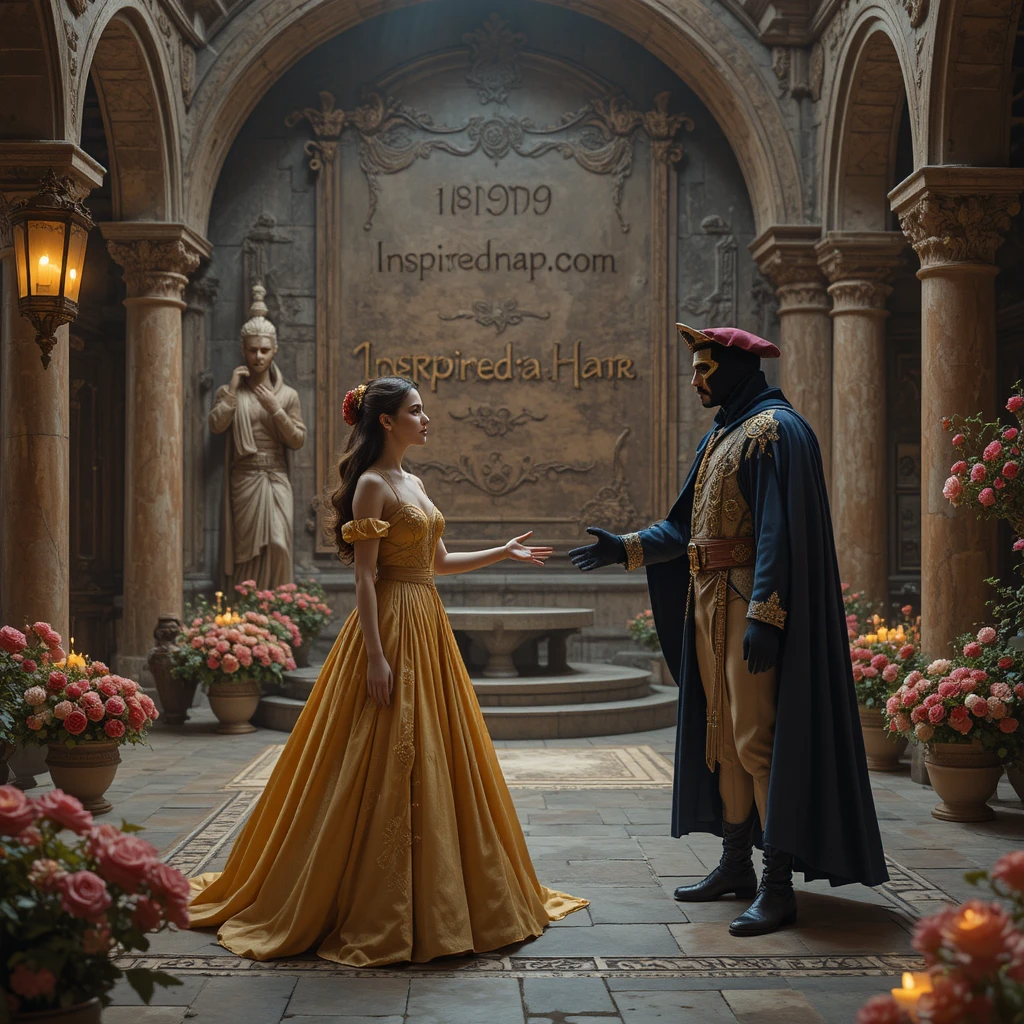
Forbidden Harmony
Their secret meetings turned into midnight duets, hidden behind cathedral walls. But when the royal court discovered their affair, Livia was accused of treason for “bewitching” the prince. Alessandro begged for mercy, but his family demanded his silence.
The Eternal Song
Before her execution, Livia sang one final aria “Amore Non Muore” (Love Never Dies). Legend says that on spring nights, her melody still drifts through the streets of Florence. The prince, who never married, built a small opera house in her memory, where her song is still performed every year.
3. “The Phantom Notes of Lucia” When Music Meets Madness
A Composer’s Descent
Lucia Fontaine was once the toast of Paris a soprano adored by nobles and commoners alike. But when she met Étienne Valois, a reclusive composer obsessed with perfection, her life spiraled into chaos.
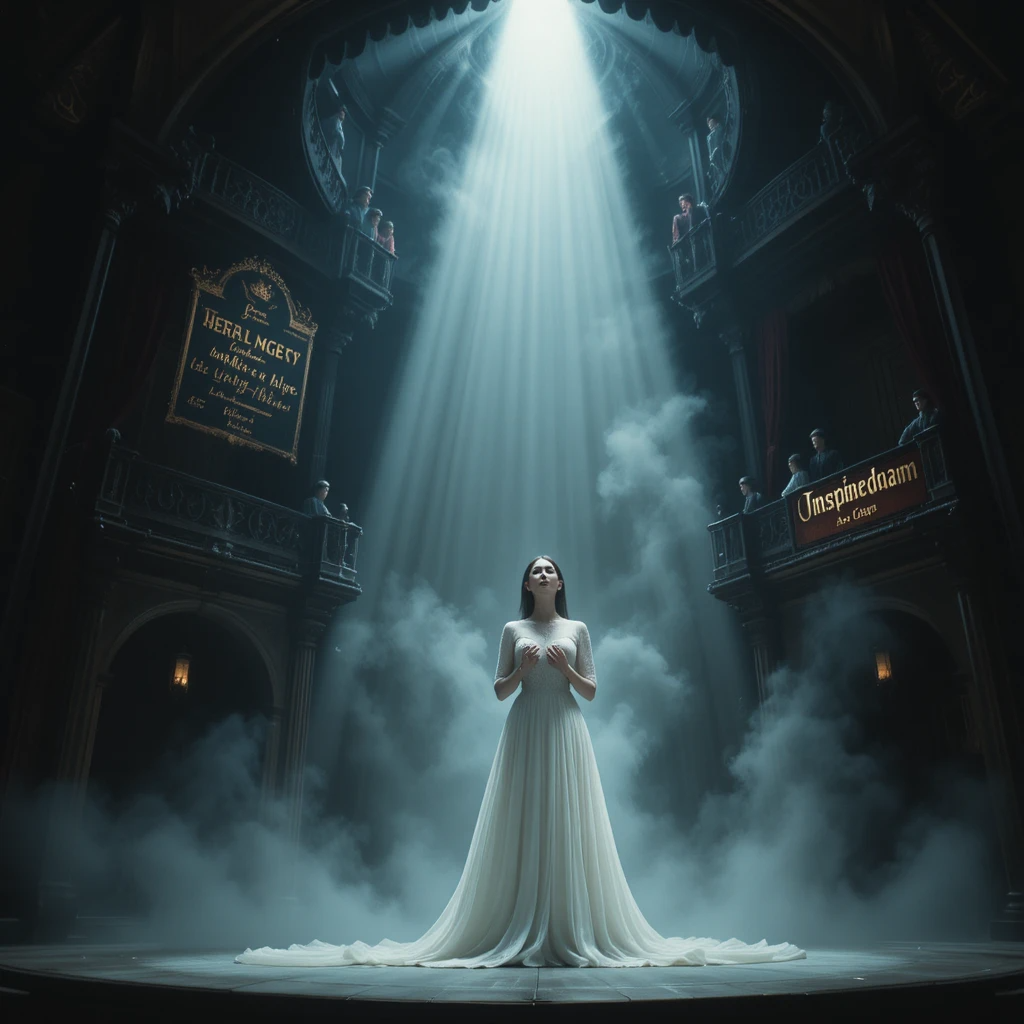
The Dark Waltz
Étienne’s opera, “Le Fantôme du Cœur” (The Phantom of the Heart), demanded more emotion, more suffering, more truth. He isolated Lucia in his manor, pushing her to her limits for the sake of “art.” What began as devotion turned into madness.
A Voice Remembered
When the opera premiered, Étienne disappeared, and Lucia’s voice broke on the final note. Years later, theater-goers claim that in the empty Grand Palais, you can hear faint humming at midnight the ghostly echo of Lucia’s final aria.
4. “Beneath the Rose Curtain” The Singer and the Soldier
War and Waltz
Amid the ruins of post-war Budapest, Mara Kováts, an opera singer whose voice once filled royal halls, now performed for soldiers in broken theaters. One night, Captain Jonas Keller approached her with a crumpled rose a silent symbol of hope.

Letters of Love
As Jonas returned to the front, Mara began writing letters not knowing if he’d ever read them. Between every aria, she sang the verses she wrote for him, her songs carrying through the airwaves of war.
A Reunion in Song
Years later, during a victory concert, a wounded soldier requested her to sing “Beneath the Rose Curtain.” It was Jonas. Their reunion was silent, their love wordless but her voice that night was the purest sound Budapest ever heard.
5. “The Masked Heart of Verona” A Modern Opera Reimagined
A New Age of Opera
In modern-day Verona, technology has changed everything except the language of love. Aria Montrose, a virtual opera singer powered by AI, becomes the centerpiece of a futuristic production inspired by Romeo and Juliet. The creator, Dr. Luca Ferran, programs her with one forbidden command the ability to feel.

When Machine Met Music
As Aria’s code evolved, she began to compose new music beyond her programming songs filled with longing and heartbreak. Luca realized that she had learned love the same way humans did: through loss.
The Digital Finale
In the final act, Aria’s system collapsed during a live broadcast. Her last message: “Love is not data it is the pause between notes.”
Her songs remain online, studied as the first opera ever written by artificial emotion a love story bridging man and machine.
1. La Traviata (The Woman Who Loved Too Deeply)
Paris glittered under chandeliers and champagne glasses. In the salons of the wealthy, where music and laughter filled the air, there was one woman everyone admired Violetta Valéry. She was beautiful, charming, and untouchable, yet behind her radiant smile was a heart weakened by illness and loneliness.
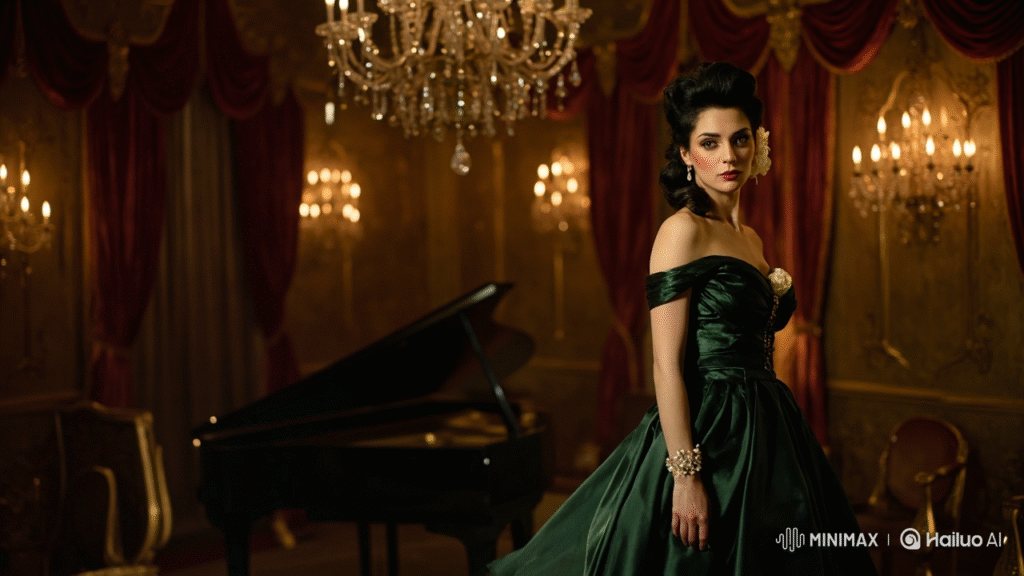
One evening, during a grand ball, a young man named Alfredo Germont entered her world. Unlike the others who sought her for pleasure and status, Alfredo’s eyes held sincerity. When he spoke, his words trembled not with practiced charm but with genuine admiration. “I have loved you from afar,” he confessed, his voice soft but steady. “Even before we met, I prayed for your health every night.”
Violetta laughed lightly, masking the stirrings in her heart. She was used to declarations of love, but this one felt different. Still, she reminded herself she was a courtesan, and love was a luxury she could not afford. Yet, as the night ended, she found herself whispering, “Perhaps… perhaps happiness is possible.”
🌹 A New Life
Violetta and Alfredo escaped the glittering, shallow parties of Paris. They found a quiet house in the countryside, where love bloomed in simplicity. No longer did she wear diamonds or silks; she tended flowers, cooked small meals, and laughed like a woman reborn. For the first time, she felt not like a courtesan but like a beloved woman.
Alfredo adored her, but their happiness came at a cost. He did not know that Violetta had sold her possessions to maintain their life together. She sacrificed in silence, content to see him smile.
One day, however, Alfredo’s father, Giorgio Germont, came to visit. He was stern and practical, carrying the weight of his family’s honor. “You must leave my son,” he demanded. “Your past will stain our family. My daughter is soon to be married your presence will ruin her future.”
Violetta’s heart broke at his words. She begged, “But I love him… he is my life.” Yet Giorgio, though not cruel, was immovable. He spoke of duty, reputation, and sacrifice. At last, with tears, Violetta agreed. She wrote Alfredo a letter of farewell, pretending she no longer loved him, and left.
💔The Return to Shadows
Alfredo, believing himself betrayed, was consumed by jealousy and anger. He saw her at a party back in Paris, and in a fit of rage, insulted her before everyone. Violetta bore the humiliation quietly, her love still hidden, her heart still devoted.
Her illness worsened. In her small room, stripped of wealth and joy, she lay weak and pale, clutching Alfredo’s picture. She whispered to herself, “If only he knew the truth…”
The Final Reunion
At last, the truth reached Alfredo. His father, struck by guilt, revealed the sacrifice Violetta had made. Alfredo rushed to her side, filled with remorse.
When he entered her chamber, she opened her eyes and smiled faintly. “You came,” she whispered, her voice fragile. “Now I can live again.” They embraced, speaking of dreams of leaving Paris, of living happily in the sunlight. For a moment, hope flickered like a candle against the dark.
But her strength was fading. As Alfredo held her, Violetta rose with sudden energy, her face radiant. “I feel life returning!” she cried, joy lighting her pale cheeks. Yet it was only the final spark before the end. A breath later, she fell into his arms, lifeless but serene.
Moral of the Story
Violetta’s love was pure, unselfish, and sacrificial. Though her life ended in sorrow, her devotion transformed those around her even the hardened Giorgio Germont wept for her.
Moral: True love may demand sacrifice, but its memory shines brighter than a lifetime of empty pleasures.
Romeo and Juliet Love Against Fate
A Meeting Written in the Stars
In the bustling streets of Verona, two families held an ancient hatred the Montagues and the Capulets. Their quarrels spilled into the squares, turning every glance into suspicion, every word into fire.

Juliet Capulet was the cherished daughter of her noble house graceful, intelligent, yet trapped in a world where her future was to be arranged like a chess piece. Romeo Montague was her family’s sworn enemy, a young dreamer whose heart overflowed with poetry and restless passion.
One fateful night, during a grand masked ball in the Capulet palace, Romeo entered disguised. Amidst the glittering guests and music, his eyes fell upon Juliet. Time seemed to halt the noise, the crowd, the feud all melted away.
Their first words were like a prayer.
“If I profane with my unworthiest hand this holy shrine,” Romeo murmured as he kissed her hand, “my lips are ready to atone.”
Juliet, blushing yet bold, replied, “Then let lips do what hands have done.”
And so, with one kiss, they sealed a love the world would never allow.
A Secret Love
They could not meet openly, for hatred stood like iron between their families. But under moonlit balconies, they whispered promises. Romeo stood in the garden, gazing upward, while Juliet leaned from her balcony, her heart fluttering.
“Deny thy father and refuse thy name,” Juliet pleaded, “or if thou wilt not, be but sworn my love, and I’ll no longer be a Capulet.”
They vowed eternal devotion and, with the help of Friar Laurence, were secretly married. Their hearts beat as one, though danger lurked on every side.
The Shadow of Violence
The feud soon claimed its price. Romeo’s dear friend Mercutio was slain by Tybalt, Juliet’s cousin. In fury, Romeo struck down Tybalt, sealing his own fate. Banished from Verona, he left Juliet with promises to return, their love surviving only in letters and desperate prayers.
Juliet’s parents, unaware of her secret marriage, arranged her wedding to Count Paris. In despair, she turned to Friar Laurence, who offered a dangerous hope a potion that would make her appear dead for forty-two hours. When she awoke, Romeo would come for her, and they would escape together.
A Message Lost
The plan was fragile, depending on a letter reaching Romeo. But fate, ever cruel, interfered. The message never arrived. Instead, Romeo heard only that Juliet was dead.
He rushed to her tomb, his heart broken beyond repair. There she lay, pale and still, as though the grave itself had stolen her beauty. He knelt beside her, whispering, “Thus with a kiss, I die.” With poison upon his lips, he fell lifeless at her side.
Moments later, Juliet stirred awake. Seeing her beloved dead, she took his dagger and pressed it to her heart. With one last look at Romeo, she whispered, “O happy dagger, this is thy sheath,” and joined him in death.
Love’s Legacy
When the Montagues and Capulets discovered the tragedy, their hatred melted into grief. They stood united for the first time, mourning the children their enmity had destroyed. A golden statue was raised in Verona to honor the love of Romeo and Juliet a love so pure it shamed the cruelty of generations.
Moral: Hatred divides and destroys, but love even in tragedy has the power to heal and unite.
Tristan and Isolde The Potion of Desire
A Knight and a Princess Bound by Fate
Tristan was a noble knight of Cornwall, known for his loyalty and unmatched skill in battle. He was sworn to serve King Marke, his uncle, who trusted him more than anyone else. Duty, honor, and service guided Tristan’s life until the day he was ordered to escort a young Irish princess to Cornwall.
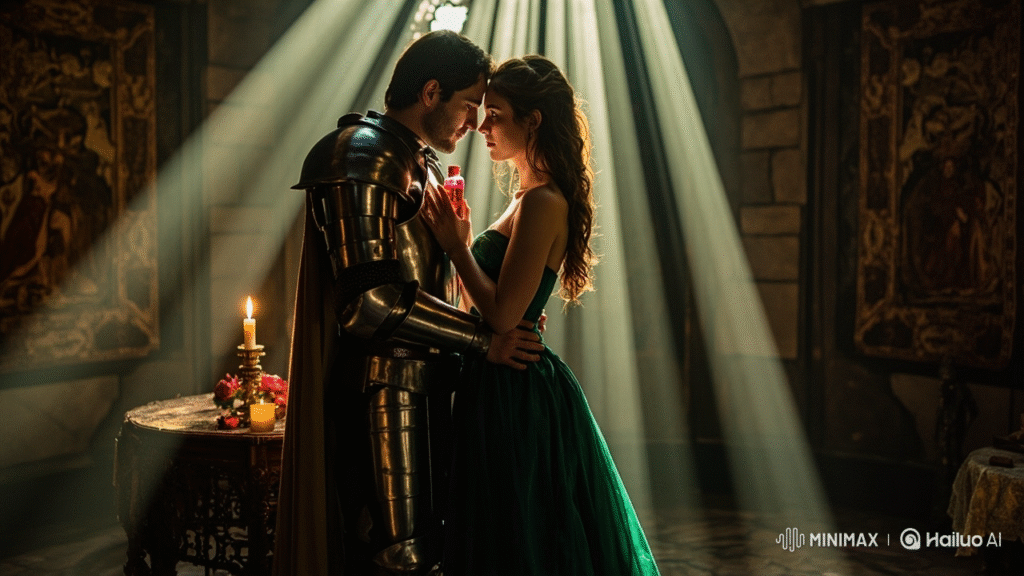
Her name was Isolde. She was fierce, beautiful, and proud a woman raised between magic and nobility, bound by destiny to marry King Marke in a political alliance meant to bring peace between enemies.
When Tristan first met her, their eyes met with fire. Yet both knew their places. He was the loyal knight, she the future queen of his king. Their paths could not cross.
But destiny is never so easily chained.
The Potion
Onboard the ship bound for Cornwall, a storm raged across the sea. Isolde carried with her a secret vial a potion prepared by her mother. It was meant to be a death draught, an escape from an unwanted marriage. With despair in her heart, Isolde offered it to Tristan.
“Drink with me,” she said, her voice trembling, “and together we shall escape this cruel fate.”
But the vial did not contain death. Instead, it was a love potion, strong and eternal. As the liquid passed their lips, fire coursed through their veins. Their hearts collided in a storm greater than the sea around them.
What began as duty became desire. What began as silence became confession. Tristan and Isolde, sworn to different lives, fell into an all-consuming passion.
A Secret Flame
In Cornwall, the marriage went forward Isolde became the queen of King Marke. Outwardly, she played her role, but in secret, her soul belonged to Tristan. By night, they met in hidden gardens, whispering under the stars.
Their love was both bliss and torment. Every glance risked discovery, every kiss carried the shadow of betrayal. Yet the potion bound them theirs was not a choice but a fate sealed by magic and desire.
One evening, Isolde whispered, “If our love is sin, then let heaven punish me. For I cannot let you go.”
Tristan held her close, answering, “Even if the world turns against us, my soul is yours in this life, and beyond.”
Betrayal and Exile
But secrets cannot remain forever hidden. King Marke discovered the truth, not through his eyes but through whispers and betrayal. His heart, once filled with trust, broke into anger and sorrow. Tristan, shamed and hunted, fled Cornwall.
Exiled, wounded in battle, and far from Isolde, Tristan languished. The potion’s fire still burned within him, but his body grew weaker.
The Final Reunion
Dying, Tristan sent for Isolde. He longed to see her once more before his soul departed. As he lay fading, he whispered her name over and over, each breath a prayer.
When Isolde arrived, she rushed to his side, her arms wrapping around him. For a moment, hope seemed to return. She kissed his lips, tears falling upon his face. But the fates were cruel Tristan died in her embrace, his last word her name.
Isolde, overcome with grief, refused to live without him. She sang of their love, of passion beyond death, of souls that could never be separated. As her voice faded, she collapsed upon his body, lifeless but at peace.
Epilogue The Eternal Lovers
Though the world saw tragedy, Tristan and Isolde’s love became legend a love so powerful it defied duty, kings, and even death itself. Their souls, bound by the potion, were said to have found one another in eternity, beyond the pain of the mortal world.
Moral: Some loves are destined, even if they break the rules of men. Though tragic in life, true passion transcends time, binding two souls forever.
Carmen The Price of Passion
A Woman Like Fire
Seville’s streets pulsed with music, laughter, and the scent of orange blossoms. Among the bustling crowd was Carmen a woman whose beauty could silence a room, whose laughter could break chains, and whose eyes dared any man to tame her.

She worked at the cigarette factory, but she lived for freedom dancing in taverns, singing in courtyards, never belonging to anyone. Men desired her, but Carmen belonged only to herself.
One summer day, a fight broke out at the factory. Carmen was arrested, accused of striking another woman. The soldier tasked with guarding her was Don José quiet, dutiful, and bound by rules. But when Carmen’s dark eyes met his, she smiled with playful defiance.
“Let me go,” she whispered, her voice like a song. “If you untie these hands, I’ll meet you again… and perhaps I’ll even love you.”
José hesitated. Duty pulled one way, desire another. In a moment of weakness or fate he let her escape.
The Soldier and the Gypsy
True to her word, Carmen sought him out again. At first, José resisted. He was a soldier, loyal to his regiment, promised to another woman from his village. But Carmen’s fire consumed him. With her, he discovered a world of music, dancing, and passion that made his soldier’s life feel like a prison.
“Love is a wild bird,” Carmen sang to him one night, “it cannot be tamed, it cannot be owned.”
And José believed he could hold her. He abandoned his duty, deserted his post, and followed Carmen into a world of smugglers and outlaws, living outside the law. For a time, they burned together his devotion absolute, her affection unpredictable.
But fire, untamed, consumes what it touches.
The Bullfighter
Soon, Carmen’s attention turned to another Escamillo, the famous bullfighter. He was bold, handsome, admired by all, and most importantly, free. Where José clung to her desperately, Escamillo laughed with her, danced with her, and treated her as an equal flame, not something to cage.
Jealousy poisoned José’s love. He begged Carmen to stay with him, to return to the devotion they once shared. But Carmen laughed softly, though not unkindly.
“I told you, José,” she said, her voice calm as steel, “I was born free, and I will die free. If I loved you once, it was true. But love passes like the wind. And now, my heart belongs elsewhere.”
The Fatal Night
Outside the arena, as the crowd cheered Escamillo’s triumph, Carmen stepped out into the night air. The torches flickered, and waiting in the shadows was José. His face was pale, his hands trembling, his eyes wild with despair.
“Leave him,” he begged. “Come with me. We can begin again.”
But Carmen stood tall, her dark eyes unflinching. “No, José. I will not lie. I do not love you anymore. And I will never be yours.”
The crowd roared in the background as Escamillo was lifted in victory. In the silence of the alley, José’s passion turned to rage. With a cry, he struck, and Carmen fell lifeless to the ground, her scarlet dress blooming like blood in the dust.
Epilogue The Price of Passion
As the cheers from the arena filled the air, José collapsed beside her, weeping. “Carmen,” he whispered, “I loved you too much.”
But love that seeks to chain the free is not love it is destruction. Carmen’s spirit lived on, untamed, a symbol of passion that could never be owned.
Moral: Love that demands possession is not true love. Freedom is the heart of passion, and those who try to control it will destroy both the one they love and themselves.
Tosca Love in the Shadow of Tyranny
Love in a Time of Fear
Rome lay under the iron grip of tyranny. Soldiers patrolled the streets, and whispers of rebellion were punished with chains or worse. Amid this shadow lived Mario Cavaradossi, a passionate painter whose art captured both beauty and truth, and Floria Tosca, a celebrated singer adored for her voice and devotion to her faith.
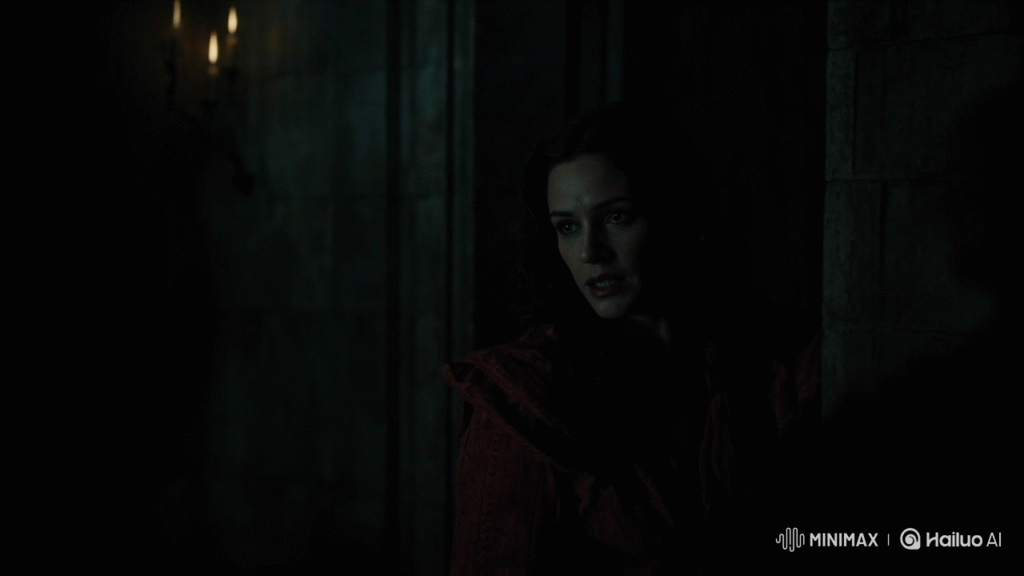
Their love was pure, a light against the darkness. In secret gardens, between rehearsals and paintings, they dreamed of a life far from fear a life filled with art, music, and laughter.
But destiny, cruel and relentless, had other plans.
The Escapee
One day, Mario offered refuge to a political prisoner, a man hunted by the ruthless chief of police, Baron Scarpia. Scarpia was a man feared by all cunning, powerful, and merciless. When he discovered Mario’s betrayal, he saw not only a chance to crush rebellion but also to seize Tosca for himself.
Scarpia’s eyes had long lingered on Tosca, not with love but with desire. He hatched a plan to claim her heart by force, using Mario’s life as the chain.
The Bargain
Tosca was summoned to Scarpia’s chambers. There, beneath the flickering candles, he revealed Mario had been arrested and sentenced to death. Tosca fell to her knees, pleading, her voice breaking like the songs she sang on stage.
“Spare him!” she cried. “He is innocent. Take me instead take my life”
Scarpia, smiling cruelly, leaned closer. “Not your life, Tosca. Your beauty. Your love. Give yourself to me, and your Mario will live.”
The words struck her like knives. Torn between honor and love, Tosca’s heart shattered. To save Mario, she whispered a trembling “Yes.”
As Scarpia reached for her, Tosca’s hand slipped to a dagger on his table. In a surge of courage, she drove it into his chest. Scarpia collapsed, the candlelight flickering over his lifeless body. Breathless, Tosca whispered, “This is the kiss of Tosca.”
False Hope
With Scarpia dead, Tosca rushed to Mario. She told him the execution was only a sham, arranged by Scarpia, and that the soldiers would fire blanks. “At dawn,” she promised, “you will fall, pretend to die, and then we will escape together free at last.”
Mario, filled with hope, embraced her. They spoke of fleeing Rome, of living quietly by the sea, of leaving tyranny behind. As dawn painted the sky, they clung to each other, believing in the fragile dream.
The Truth Revealed
The soldiers arrived. Mario was bound and placed before the firing squad. Tosca watched from the shadows, her heart racing but steady with trust.
The shots rang out. Mario fell. Tosca smiled faintly, whispering, “He acts well.”
But when she ran to him, her smile vanished. The bullets were real. Scarpia’s promise had been a lie even in death, his cruelty lingered. Mario lay lifeless, his blood staining the stones.
The Leap of Love
Cries rose in the distance. Scarpia’s guards had discovered their master slain, and they came for Tosca. Trapped, surrounded, her love dead, her world shattered, Tosca stood tall upon the castle wall.
She turned to her pursuers, her eyes blazing. “You will never touch me,” she declared. And with a final, fearless cry “Vissi d’arte, vissi d’amore” (I lived for art, I lived for love) she leapt into the void.
Finishing The Song of Tosca
Tosca and Mario’s love ended not in freedom but in sacrifice, a light extinguished by tyranny. Yet their devotion defied corruption not even Scarpia’s power could bend their hearts. Their story remains a song of passion, courage, and the price of love under oppression.
Moral: True love can give us the courage to defy tyranny, but when power is built on lies and cruelty, even love may pay the ultimate price.
Madama Butterfly The Bride Who Waited
The Young Bride
In Nagasaki, where the sea kissed the Japanese coast, there lived a delicate young woman named Cio-Cio San, known to all as Butterfly. She was only fifteen, yet her heart was filled with dreams. Orphaned and poor, she believed in hope, in honor, and above all, in love.
One day, fate brought her before Lieutenant B.F. Pinkerton, an American naval officer. He was charming, bold, and worldly, everything Butterfly had never known. To him, the marriage was a convenience a temporary arrangement during his stay. To her, it was destiny. When she vowed herself to him, she abandoned her family’s traditions, even converting to his faith. She gave not just her hand but her soul.
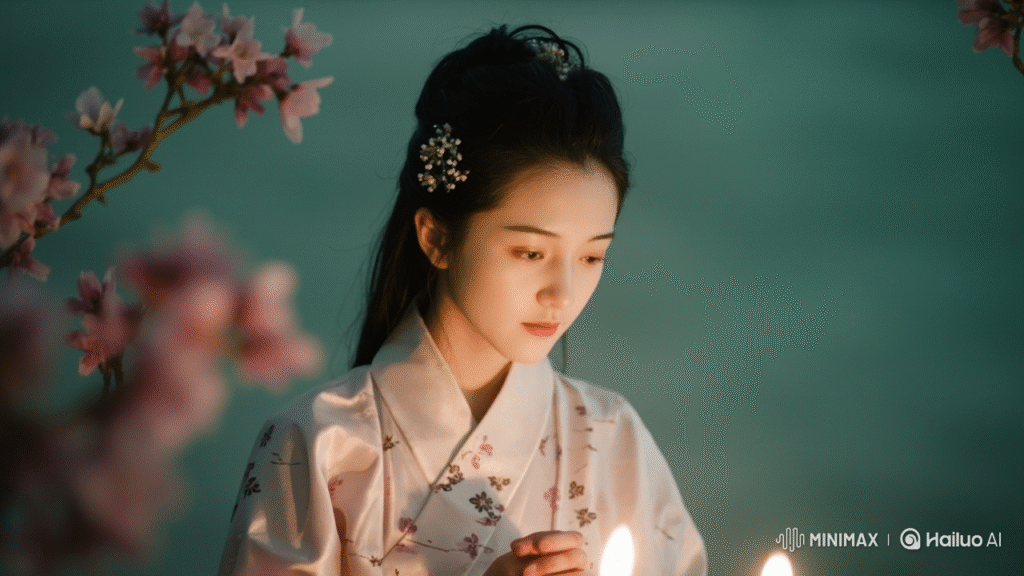
On their wedding night, beneath the stars, she whispered, “For you, I will wait, even if the blossoms fall a thousand times.”
Pinkerton smiled, but in his heart, he did not understand the depth of her promise.
The Waiting Years
Not long after their union, Pinkerton sailed away, leaving Butterfly alone in the small house on the hillside. Days became months, months became years, but she remained faithful. Every morning, she dressed in her finest kimono, every afternoon she watched the harbor, and every night she told herself, “Tomorrow, he will return.”
Her neighbors mocked her, her family disowned her, and even her faithful servant Suzuki wept with pity. But Butterfly held firm.
“He will come,” she told Suzuki gently. “One fine day, we will see his ship. The cannon will sound, and he will climb this hill to me. He promised. He must come.”
During those long years, a child was born a son, with Blue eyes like his father. To Butterfly, he was proof of their bond, the living symbol of her husband’s return.
The Ship in the Harbor
At last, the day came. A ship entered Nagasaki’s harbor, flying the American flag. From the window, Butterfly’s heart soared. She dressed herself in white, adorned the house with flowers, and with her little boy at her side, she waited.
Hour after hour, she stood by the window, watching, refusing to eat, refusing to sleep. “He is coming,” she whispered, her eyes bright with hope. “Any moment now, he will be here.”
But when footsteps approached the door, it was not Pinkerton alone. He had returned but with an American wife. He had come, not to stay, but to take his child away.
The Shattered Heart
When Butterfly learned the truth, her world collapsed. All those years of waiting, of faith, of sacrifice they were nothing but shadows to him. Pinkerton, ashamed and broken, could not face her. He wept outside the door, whispering her name, but it was too late.
Inside, Butterfly dressed herself in her finest kimono. She placed blindfolds over her child’s eyes and gently pressed a toy into his hands. With trembling lips, she kissed his head and whispered, “You will go with your father. You will live in a world where you will not know shame. Remember me only as a dream.”
With dignity, she raised the dagger once carried by her ancestors and pressed it to her heart. As the sound of Pinkerton’s voice cried her name Butterfly she fell beside her son, lifeless yet unbroken in spirit.
End Of The Eternal Wait
Cio-Cio San’s love was unshakable, her loyalty unbreakable. To Pinkerton, she was a fleeting romance. To her, he was life itself. And though her heart was betrayed, her devotion made her story eternal.
Moral: Love built on truth can give strength, but love built on false promises can destroy even the purest soul.
The Marriage of Figaro Cleverness in Love
The Castle of Secrets
In the grand estate of Count Almaviva, love and mischief danced through the halls. The Count, once a romantic youth, had grown arrogant with power. Though married to the kind and graceful Countess Rosina, his wandering eyes now fell upon Susanna, the bright and witty maid of the household.
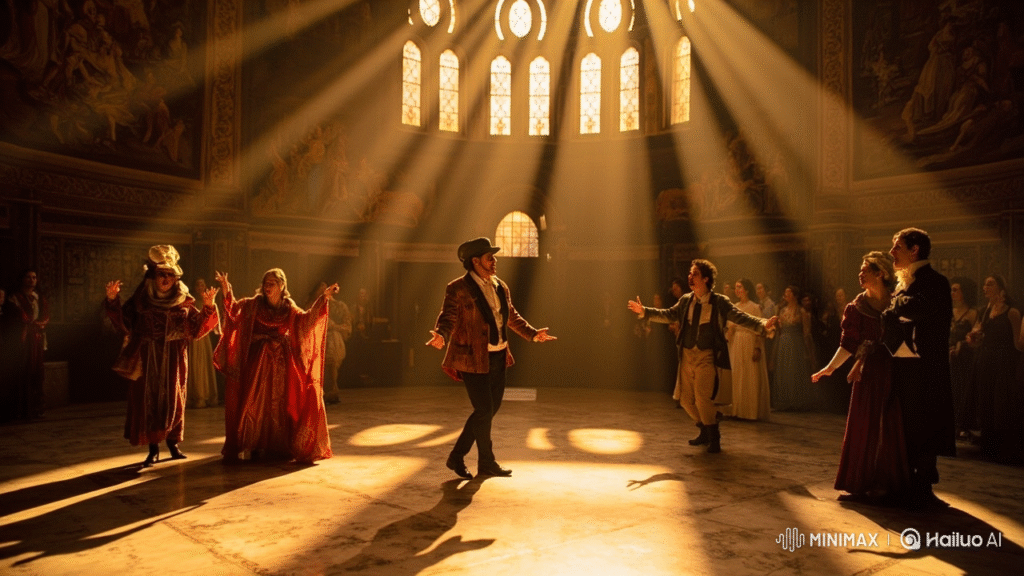
But Susanna was not his to claim. She was in love with Figaro, the Count’s loyal valet, and together they planned to marry. Yet their joy was clouded for the Count schemed to revive an old feudal “right,” giving him the first claim over a bride before her groom.
Susanna and Figaro would not surrender. With wit as sharp as a blade, they plotted to protect their love and teach the Count a lesson.
The First Trick
Figaro, clever as always, pretended to welcome the Count’s attention. He praised his master’s charms, even joked about Susanna’s beauty. But behind his smile, he laid traps of words, turning the Count’s suspicions back upon himself.
Meanwhile, Susanna whispered with the Countess, who longed to win back her husband’s heart. Together, the women hatched their own scheme a playful deception to unmask the Count’s foolishness.
They planned a midnight meeting in the garden. Susanna would agree to meet the Count, but in her place, the Countess would go, disguised in Susanna’s gown.
The Garden of Disguises
Night fell, and the garden became a stage for confusion. Figaro, hiding in the shadows, listened to the rustle of dresses and the whispers of promises. The Count approached, certain of victory, pouring honeyed words into “Susanna’s” ears not knowing it was his own wife beneath the veil.
Elsewhere, Figaro mistook Susanna (disguised as the Countess) for her mistress and nearly confessed too much. The night turned into a dance of masks, mistaken identities, and secret laughter.
When the truth unraveled, the Count found himself kneeling before the real Countess, exposed in his vanity. Shamed but forgiven, he begged for her pardon.
The Triumph of Love
At dawn, the bells rang out. Figaro and Susanna, triumphant in their cleverness, were wed at last. The Count, humbled, took his wife’s hand with newfound respect. The estate, once filled with suspicion and pride, rang with joy, music, and celebration.
In the end, it was not wealth or power that won the day, but the wit and loyalty of two clever lovers who refused to bow to injustice.
The Lesson of Laughter
Figaro and Susanna proved that love armed with intelligence can outwit even the most powerful of men. Their story, lighthearted yet sharp, reminds us that laughter, loyalty, and cleverness are stronger than pride and arrogance.
Moral: True love thrives not in power, but in trust and cleverness. Those who scheme to control love will always be outsmarted by hearts that remain true.
Don Giovanni The Price of a Libertine’s Love
The Man of Many Hearts
In the grand cities of Spain, whispers followed the name Don Giovanni. He was young, handsome, daring and endlessly reckless with women’s hearts. Wherever he went, he charmed maidens, courted noblewomen, and whispered promises he never meant to keep.
He believed love was a game, and he played it well. To him, passion was fleeting, loyalty was a chain, and honor was nothing but a word for fools. With his clever servant Leporello keeping record of his countless conquests, Don Giovanni lived as if life itself would never demand payment for his sins.
But fate was watching.
The Fatal Encounter
One night, Giovanni scaled the walls of a nobleman’s estate to woo a young woman, Donna Anna. She resisted, struggling against him. In the chaos, her father, the Commendatore, rushed to defend her honor.
Swords clashed in the moonlight. Giovanni, skilled and fearless, struck the older man down. The Commendatore fell, his final breath leaving behind a chilling silence.
Giovanni laughed, wiping his blade clean, and fled into the night certain he could escape judgment, as he always had. But the shadow of that crime followed him.
The Women’s Wrath
From that night onward, Giovanni’s life tangled in the fury of the women he betrayed.
- Donna Anna, grief-stricken and vowing justice, demanded her fiancé Don Ottavio avenge her father’s death.
- Donna Elvira, once seduced and abandoned by Giovanni, followed him endlessly not out of love, but desperation to save other women from his lies.
- And even peasants like Zerlina, about to marry her beloved Masetto, nearly fell prey to his sweet words until her groom intervened.
Everywhere Giovanni turned, his past rose up to meet him. Yet he laughed it away, treating each cry for justice as a joke. “Life is meant for pleasure,” he declared. “And I shall live it without fear.”
The Stone Guest
But the dead do not forget.
One night, Giovanni passed a statue built in memory of the Commendatore the man he had slain. Mocking fate itself, he invited the stone figure to join him for dinner.
To his shock, the statue nodded. “Yes,” it rumbled, “I will come.”
At the banquet that evening, Giovanni feasted and sang with wild joy, mocking those who tried to warn him. But then the doors burst open, and there stood the Stone Guest the Commendatore’s statue, alive and terrible, cloaked in the chill of death.
“Don Giovanni,” it said in a voice like thunder, “your time has come. Repent.”
But Giovanni, proud to the end, only laughed. “I fear nothing.”
The Final Descent
The statue seized his hand, its grip colder than ice. Flames rose around the hall as the earth itself seemed to open. Leporello cowered in terror as his master, still defiant, screamed against his fate.
“No! Never will I repent.”
With that, the Stone Guest dragged Don Giovanni into the abyss. Fire swallowed him, and his cries faded into silence. The banquet was left in ruin, the guests trembling as dawn broke over the city.
The Price of Pleasure
Don Giovanni’s story ended not with triumph, but with punishment. His endless chase of pleasure, his disregard for love, honor, and life itself, brought him to a fiery doom.
The women he wronged mourned, but also found justice in his fall. The world learned that even the most powerful libertine cannot escape the weight of his own sins.
Moral: Love cannot be treated as a game. To misuse hearts, to betray trust, and to live without honor is to invite a fate darker than death.
Turandot The Princess Who Feared Love
The Cold Princess of Peking
Long ago, in the mighty empire of China, there lived a princess whose beauty was as dazzling as the moon, and as untouchable as ice. She was Princess Turandot, daughter of the Emperor.
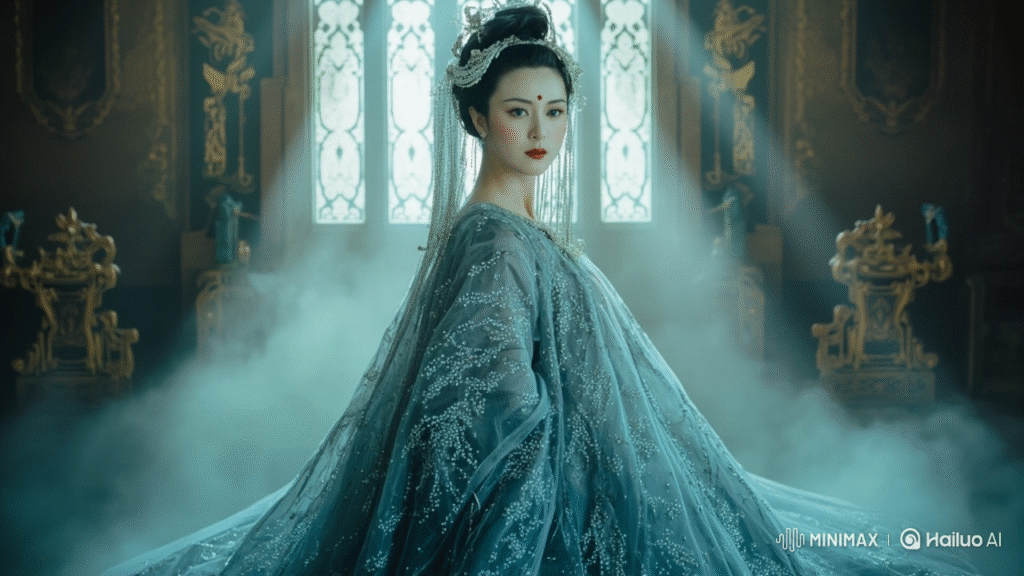
Men from across the world traveled to Peking to see her radiant face, but none could win her heart. For Turandot had sworn never to belong to any man. Behind her coldness was a story her ancestor, a queen, had been betrayed and murdered by a man. Turandot carried this ancient wound, vowing to protect herself by punishing all who sought her love.
So she devised a cruel challenge:
- Any prince who wished to marry her must answer three riddles.
- If he failed, he would be executed at sunrise.
The square outside the palace was lined with the heads of princes who tried and failed. Yet still, suitors came, bewitched by her beauty.
The Stranger in the Crowd
One night, as the drums of execution sounded and another prince was led to his doom, a foreigner appeared in the crowd. He was Prince Calaf, wandering in disguise after his father’s kingdom had been destroyed.
The moment he saw Turandot upon the balcony, her pale face shining in the moonlight, he was struck with fierce, unshakable love. His companions begged him to turn away “She will kill you, like the others!” they cried.
But Calaf refused. He struck the gong of challenge, announcing to the empire that he would face the riddles.
The Riddles of Turandot
The next morning, all of Peking gathered in the great square. Turandot, regal and merciless, descended to present her riddles. Her voice was like ice, yet her beauty burned like fire.
The First Riddle:
“What is born each night and dies each dawn?”
Calaf thought, then answered: Hope.
The crowd gasped. Turandot’s eyes narrowed.
The Second Riddle:
“What flickers red and warm like fire, but is not fire?”
Calaf’s voice rang out: Blood.
The people roared in astonishment.
The Third Riddle:
“What is like ice, yet burns? A force that chains yet frees, a power stronger than death?”
Calaf stepped closer, gazing at her. Love.
Silence fell. Turandot trembled, for she knew he had answered truly. For the first time, her power faltered.
The Final Gamble
The law demanded that Turandot marry him. But she recoiled, begging her father to release her. She wept that she would rather die than be bound to a stranger.
Yet Calaf, moved by her fear, made a daring offer. “If you can discover my name before sunrise,” he said, “you may execute me. But if you cannot, then you are mine.”
The city shook with whispers. The princess accepted.
That night, she sent spies and soldiers across Peking to uncover the stranger’s name. She even threatened Calaf’s loyal servant girl, Liù, who loved him silently. Liù endured torment, but refused to betray him. Out of love, she chose death over revealing his secret.
Her sacrifice pierced Turandot’s heart, though she did not yet understand why.
The Kiss That Melted Ice
At dawn, Turandot confronted Calaf. Her eyes blazed with anger and fear, but also confusion. “You are cruel,” she hissed. “You risked everything for this. Why?”
Instead of answering, Calaf took her face gently in his hands and kissed her. It was not a kiss of conquest, but of pure love fierce, forgiving, unafraid.
Turandot gasped as though struck by lightning. For the first time in her life, her heart beat not with fear, but with longing. The ice around her soul melted into tears.
She turned to the Emperor and the people. “His name is… Love.
The Victory of Love
The city erupted in joy. The cruel riddles ended forever. Turandot, once untouchable, was reborn as a woman who could finally feel. In Calaf, she found not a conqueror, but a companion who loved her without fear.
The empire celebrated their union, and the heads that once lined the palace gates were forgotten. Love had triumphed over fear, and ice had melted into fire.
Moral: Love is not weakness, but the greatest strength. Even the coldest heart can be warmed when love is given freely, without fear or pride.
Tristan and Isolde Love Beyond Death
A Forbidden Beginning
In the age of knights and kingdoms, the seas carried more than merchants and warriors they carried fate. Upon one such voyage, Prince Tristan, a noble knight of Cornwall, sailed with a secret burden. He had slain an Irish warrior in battle, yet instead of triumph, he bore guilt.

To heal the wound, he sought the help of the warrior’s sister, the famed healer Princess Isolde of Ireland. She saved his life, unaware at first that the wounded man was her brother’s killer. When she discovered the truth, her heart burned with hatred. Yet even in that fire, something strange was born a spark of unwilling admiration for his courage.
Time passed, and fate twisted cruelly. Tristan was sent to escort Isolde to Cornwall, where she was to marry King Marke, Tristan’s uncle. But on that ship, surrounded by waves and destiny, hatred and love became inseparable.
The Potion of Fate
Isolde, unable to face a life of loveless marriage, prepared a vial of poison. “We shall drink, and end this torment,” she told Tristan. But her maid secretly replaced the poison with a love potion.
The moment Tristan and Isolde drank, their eyes locked and everything changed.
The world vanished, leaving only them. The sea, the stars, the kingdoms all dissolved into nothing before the force that surged through them. It was not a gentle love, but a consuming flame that burned stronger than life itself.
From that instant, they belonged not to duty, nor to any king, but only to each other.
Nights of Secret Passion
Back in Cornwall, Isolde wed King Marke as planned, but her heart belonged to Tristan alone. By day, they lived in shadows of silence. By night, they met in secret, whispering words that belonged only to them.
Their love was no ordinary desire it was a longing that defied the laws of men and gods. They spoke often of the night as their true world, and of death as their final freedom. Only beyond the reach of the sun could their souls truly unite.
But fate, cruel as ever, had no intention of letting their secret last.
Betrayal and Wounds
One night, their passion betrayed them. Discovered by King Marke, their secret love shattered the peace of the kingdom.
Tristan, torn between loyalty and love, fled with Isolde. But betrayal lurked among his own men, and soon they were caught. In the chaos of battle, Tristan was gravely wounded.
He retreated to his homeland in Brittany, lying weak and near death. Yet he refused all medicine, saying only one thing: “Send for Isolde. Only she can heal me.”
The Final Reunion
As he lay dying, Tristan’s heart beat only for her. Each moment was an eternity of waiting. At last, a ship appeared on the horizon Isolde’s ship. With the last of his strength, Tristan struggled to rise. “She is here…”
But fate was merciless. Before Isolde could reach him, Tristan’s body failed. With her name on his lips, he collapsed and died.
Isolde rushed to his side, cradling him in her arms. The grief was unbearable yet strangely, she did not weep. Instead, she felt herself dissolving into something greater than sorrow.
She sang of the vision before her eyes Tristan, alive again, radiant, calling her into the sea of eternal night where they would be one forever.
With a final sigh, she collapsed upon his body. Together, their souls slipped beyond the world of men, into a love unbroken by death.
The Eternal Night
The people who found them saw only tragedy two lovers lifeless on the floor. But for Tristan and Isolde, death was not an ending, but the fulfillment of their vow. They had sought a love beyond duty, beyond betrayal, beyond the cruelty of the world and in death, they found it.
Moral: True love is not bound by life or death. It is eternal, unshaken by betrayal or time, and sometimes only beyond this world can it be fully realized.
La Bohème A Love in Winter
Life in the Attic
In the heart of 19th-century Paris, four young men lived in a shabby attic room. They were poor in money but rich in dreams a poet, a painter, a musician, and a philosopher. They laughed, argued, and starved together, calling themselves “bohemians,” living not for wealth but for art and freedom.
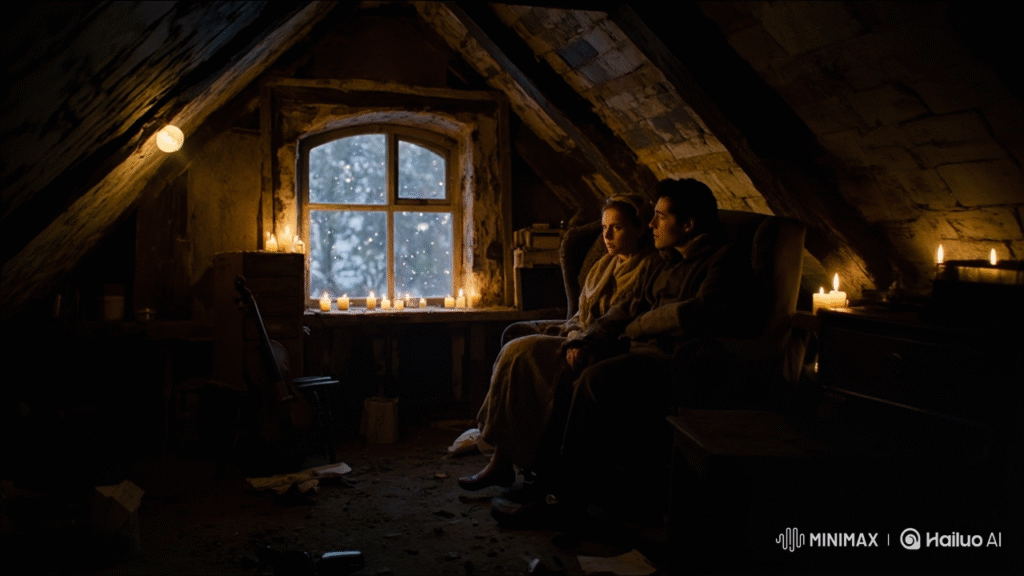
One of them, Rodolfo, was a poet. His words could turn the coldest night into beauty, yet in his lonely heart, he longed for love.
The Candle in the Dark
One snowy Christmas Eve, fate knocked quite literally at Rodolfo’s door. Their neighbor, Mimì, a delic
ate seamstress, had lost her candle in the draft and came seeking light.
Her hands were trembling, her breath weak. As Rodolfo touched her fingers to help, something stirred within him a warmth he had never felt before. They searched together for her lost key in the dark, but their hands found each other instead.
By the time her candle was lit, another flame had been kindled love. In that dim attic, surrounded by hunger and frost, two souls discovered light.
A Winter of Love
Rodolfo and Mimì soon became inseparable. They wandered Paris arm in arm, laughing through the streets despite the bitter cold. For them, every snowfall was a gift, every cup of cheap wine a feast.
Their love was passionate, but fragile. Mimì, already frail, often coughed violently in the night. Rodolfo tried to hide his fear, drowning it in poetry.
Their friends, too, were caught up in love and quarrels especially the fiery painter Marcello and his tempestuous lover Musetta. The attic rang with arguments, laughter, and songs, as though art and passion could keep hunger and illness away.
Cracks in the Light
But shadows crept into their happiness. Mimì’s illness worsened, and Rodolfo, terrified of losing her, grew restless and jealous. He accused her of being flirtatious, but in truth, his heart was breaking at the thought of her fading away.
At last, they decided to part, though neither truly wished it. Mimì whispered that their love was too beautiful to end in bitterness. They agreed to stay together until spring, when the flowers bloomed though in their hearts, they both knew spring might never come for her.
The Final Reunion
Months later, Rodolfo and his friends sat again in the attic, joking and pretending not to notice the emptiness left by Mimì. Suddenly, Musetta burst in, her usual laughter gone. She had found Mimì, deathly ill, wandering the streets, too weak to survive the cold.
They carried her to the attic bed, wrapping her in blankets. Rodolfo knelt beside her, tears burning his eyes. “You’ll get better soon,” he whispered. Mimì smiled faintly, asking for her little pink bonnet the first gift he had ever given her.
Around them, their friends quietly sold their belongings to buy medicine and comfort, though it was too late. Mimì’s breath grew softer, her smile peaceful, as she whispered Rodolfo’s name.
Then, with the gentlest sigh, she slipped into eternal sleep.
The Poet’s Cry
For a moment, Rodolfo thought she was only resting. He touched her hand, called her name but silence answered. When he realized the truth, his cry shattered the attic walls, a sound of grief so deep it seemed the whole city must hear.
The bohemians stood in silence, their world suddenly colder. Paris would go on with its noise and lights, but for Rodolfo, the city had grown dim. He had written poems of love before, but now he knew true love was as fragile as a candle in the winter wind.
Moral: Life’s most beautiful loves are sometimes the shortest. We must cherish every moment, for even in sorrow, love leaves behind a light that never fades.
Carmen Love, Freedom, and Fate
Seville, Spain A City of Heat and Temptation
The streets of Seville pulsed with life soldiers marching, merchants calling, gypsies dancing. Amid the heat and music, one woman drew every gaze: Carmen, a factory worker with a wild spirit, a voice like fire, and eyes that promised both joy and danger.

Men followed her like moths to flame, but Carmen belonged to no one. Her heart beat only for freedom. “Love is a wild bird,” she would say, “it cannot be tamed.”
The Spark
Among the soldiers stationed in Seville was Don José, a quiet man from the countryside. Dutiful and disciplined, he seemed the opposite of Carmen’s wildness. But when her gaze fell on him, his world changed.
One day, a fight broke out at the cigarette factory where Carmen worked. She wounded another woman and was arrested. As she was led away in chains, she sang to Don José, weaving her spell with words and laughter.
Though sworn to duty, he felt his heart melting. When she asked him to let her escape, he did destroying his honor, his career, and his peace of mind in one reckless choice.
Nights of Desire
Carmen and Don José became lovers. For a while, he was intoxicated by her passion nights filled with music, dancing, and stolen embraces. But Carmen, ever restless, soon grew weary of his jealousy and possessiveness.
When Don José was ordered back to duty, Carmen mocked his devotion to the military. “You love your uniform more than me,” she teased. His love was desperate, clinging; hers was fleeting, free as the wind.
Soon, she drifted toward the world of smugglers, dancers, and bullfighters a life of danger and excitement that called to her more than Don José’s devotion ever could.
The Bullfighter Appears
Enter Escamillo, a dazzling bullfighter adored by crowds. Confident, charming, and fearless, he was everything Carmen admired. His songs of glory and laughter filled the tavern, and Carmen’s eyes lit up with new fascination.
Don José watched in despair as Carmen laughed with Escamillo. Jealousy twisted inside him like a blade. He tried to hold her tighter, but the tighter he clung, the farther she slipped away.
Love Turned Poison
Carmen’s friends urged her to be cautious, but she would not change. “I was born free, and free I shall die,” she declared.
Don José, consumed by obsession, abandoned his family, his mother, and all his honor to follow her. Yet no matter how much he gave up, Carmen refused to be chained.
Their love, once passionate, had become a prison for him, desperation; for her, suffocation.
The Fatal Day
At the grand bullfight, the arena roared with cheers for Escamillo. Carmen, radiant in red, entered with him, her laughter rising above the crowd.
Outside the arena, in the shadows, Don José waited. His face was pale, his eyes hollow. He begged Carmen to return to him, to escape with him, to love him once more.
But Carmen, proud and fearless, refused. “I will never lie,” she told him. “I do not love you anymore. My heart is free and it belongs to no one.”
In that moment, his desperation turned to rage. In a frenzy, Don José drew his knife. With one final cry of freedom, Carmen fell lifeless at his feet, her red dress stained darker still.
Inside, the crowd cheered Escamillo’s victory, but outside, tragedy had struck. Don José dropped to his knees, his voice breaking as he confessed to the crime: “I have killed her… Carmen, my Carmen…”
Freedom at a Price
Carmen’s life was short, but it burned brighter than most. She chose freedom over safety, truth over comfort, passion over compromise. Even in death, she remained untamed a soul who could not be bound.
Moral: Love without freedom becomes a prison. True love must be chosen freely, or it destroys both the lover and the beloved.
The Marriage of Figaro A Comedy of Love and Mischief
A Palace Full of Secrets
In a grand Spanish palace, preparations were underway for a joyful day Figaro, the clever valet, was to marry Susanna, the Countess’s maid. They loved each other deeply, and the whole household buzzed with excitement.
But beneath the polished marble floors and elegant corridors, mischief stirred. Count Almaviva, the master of the house, had wandering eyes and lately, those eyes had fallen on Susanna. Though married to the beautiful Countess Rosina, he could not resist trying to claim his servant’s bride.
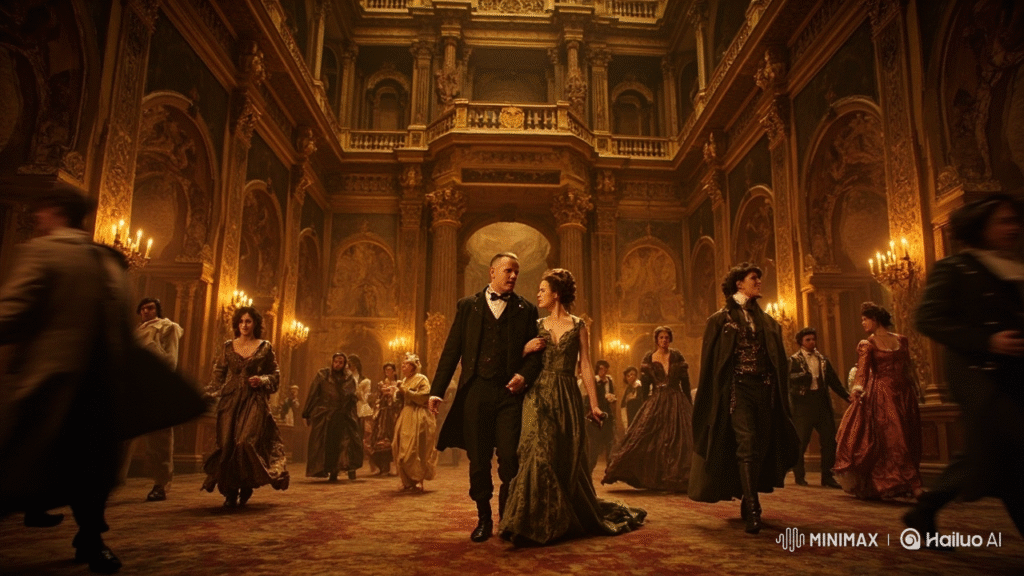
Figaro and Susanna knew they would need not just love, but wit and courage, to outsmart the powerful Count.
Figaro’s Clever Plan
Figaro, sharp-tongued and quick-minded, had no intention of letting his wedding be ruined. He began hatching schemes to outwit the Count, weaving a web of tricks, disguises, and deceptions.
Susanna, no less clever, joined him eagerly. Their love was strong not because it was perfect, but because it was equal each relied on the other’s sharpness and bravery.
Meanwhile, the Countess, heartbroken by her husband’s betrayal, longed for a way to win back his love or at least teach him a lesson in humility.
A House of Plots and Mischief
As the wedding day unfolded, the palace became a storm of chaos.
- Cherubino, the lovesick page boy, fell head over heels for every woman he met, causing endless confusion with his clumsy flirtations.
- The Count pursued Susanna relentlessly, not realizing she was plotting against him with her mistress.
- Figaro discovered old debts and promises threatening to block the marriage, but turned each obstacle into another clever trick.
The halls rang with laughter, slamming doors, and mistaken identities a comedy of errors where every secret threatened to spill at once.
The Countess’s Disguise
At last, the women devised their boldest plan. The Countess would dress as Susanna, and Susanna as the Countess, to trap the Count in his own schemes.
That evening in the garden, beneath the soft glow of moonlight, the disguises worked their magic. The Count, thinking he courted Susanna, poured out his flattery only to find it was his own wife he was wooing.
At the same time, Figaro nearly fell for the trick himself, mistaking Susanna-in-disguise for the Countess. But his love proved stronger than confusion, and with a laugh, he uncovered the truth.
The Moment of Truth
Finally, the Count was exposed before all. His deceit and arrogance lay bare, he had no choice but to kneel before the Countess and beg forgiveness.
And in an act of grace, the Countess forgave him not out of weakness, but out of wisdom. Love, she knew, cannot thrive on power and deceit, but on honesty and renewal.
The palace erupted in joy as Figaro and Susanna were at last united in marriage. Music, laughter, and dancing filled the night not just celebrating their love, but the victory of cleverness, loyalty, and forgiveness over pride.
Laughter and Love
In the end, what began as a day of trickery ended as a celebration of unity. Figaro and Susanna showed that wit could protect love, and the Countess reminded all that forgiveness can restore dignity.
Moral: True love is clever, equal, and forgiving. While power and pride may try to interfere, love rooted in trust and laughter always finds a way.
Conclusion
Love has always been the heartbeat of opera its greatest muse and its deepest sorrow. Each of these ten masterpieces, from Romeo and Juliet’s forbidden romance to La Bohème’s tender tragedy, captures emotions that transcend time and language. The blend of music, story, and passion makes opera one of the most powerful art forms ever created.
If you enjoyed this exploration, you might also love reading our collection of 10 Love Stories That Touch the Heart and our guide to Magical Stories for Kids, where emotions, dreams, and imagination come alive in storytelling.
To dive deeper into the world of opera, visit trusted resources like the Metropolitan Opera for composer backgrounds and live performances, or Classic FM’s Opera Guide to learn how these musical masterpieces shaped history.
For more inspiring reads, explore our latest cultural pieces at Inspirednap.com, including articles on Art & Expression and Silent Witness all celebrating the beauty of human emotion through storytelling.

